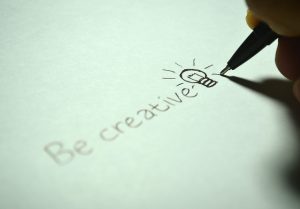Every student might sometimes experience trouble with studying. But with these routines, you will be able to study many times more productively – without much effort – and you will be significantly relieved in high-pressure phases. This article will give you tips on how you can create habits that will help you learn twice as fast as before.
Table of Contents
Address Different Senses When Learning!
Our brain hates monotonous processes and switches to energy-saving mode during boring activities. So, if you commit to reading definitions and summaries for four hours, not much of it will stick unless you repeat it 20 times, which you don’t have time for.
Therefore, when learning, try to appeal to different senses and challenge both halves of your brain: work with visual stimuli and draw a mind map, a sketch, or a diagram. Watch an explainer video or listen to an interview related to your topic. It doesn’t really matter how you do it but avoid monotony.
Learn In Small Stages!
Break up your learning sessions into small chunks and learn in stages. Large units – without a break – do not get you anywhere and are inefficient. Small breaks, in which you can consciously distract yourself, have a stimulating effect and promote your stamina.
The only danger is that your little breaks will turn into big breaks. Solution: Plan your breaks and do specific things. It also helps if you work with a timer that reminds you to keep going. And in case you are still not able to complete all your written tasks, you can delegate your essays to an essay writing service to achieve the best result in your studies.
Practice Single-Tasking!
Don’t deal with too many things at the same time. Just focus on one specific task at a time. When you multitask, you quickly get bogged down and learn inefficiently. This makes you dissatisfied because you feel like you haven’t accomplished anything.
Multitasking won’t get you anywhere; the opposite is the case: multitasking throws you back and blocks you – physically and mentally. Single-tasking works much better. When single-tasking, you concentrate your strength and concentration on a single task. Distractions and trivialities no longer stand a chance.
Always Take Notes!

Get in the habit of writing down anything that might be relevant to your studies. Always take notes, and don’t think you’ll remember this and that because you won’t remember because there are too many things in your head that distract you and draw your attention.
Therefore: If an important sentence falls in the lecture – write it down. If you can develop a helpful train of thought in the study group – write it down. If you understood a connection while reading the script – write it down. Notes help you immensely afterward and save you valuable minutes or even hours of work.
Work With A Smart To-Do List!
I bet you have a to-do list – and I bet it’s poorly organized. If you’re going to go to the trouble of making a list of your tasks, please do it right. Here’s how: Don’t pack your list too full and only include the most important tasks. Sort your tasks into categories, assign priorities and assign a deadline to each item.
Create some structure on your list and turn your tasks into clear, motivating goals – because then you’ll be able to tick off your to-dos much sooner and won’t be put off by the pressure.
Improve Your Speed Reading!
In your studies, you have to read an incredible amount: textbooks, scripts, articles, case studies, scientific papers, etc. So, get used to a few speed-reading techniques and continuously improve your speed reading.
Speed Reading helps you scan large amounts of text in a short amount of time while still capturing the most important information. This has little to do with relaxed reading, but this method is ideal for giving you a quick overview and controlling your literature chaos.
Use Waiting Times!
Make it a habit to use waiting times productively and do something for your studies at the same time. This approach is known as passive learning and means that you combine everyday activities (that don’t require you to think) with learning units.
For example, you can memorize three new definitions while brushing your teeth or read a professional article while waiting for the bus. You can piece together formulas in your head while you’re peeling potatoes or review the structure of Chapter 2 of the lecture while you’re in the shower.
Featured Photo by Tirachard Kumtanom: https://www.pexels.com




